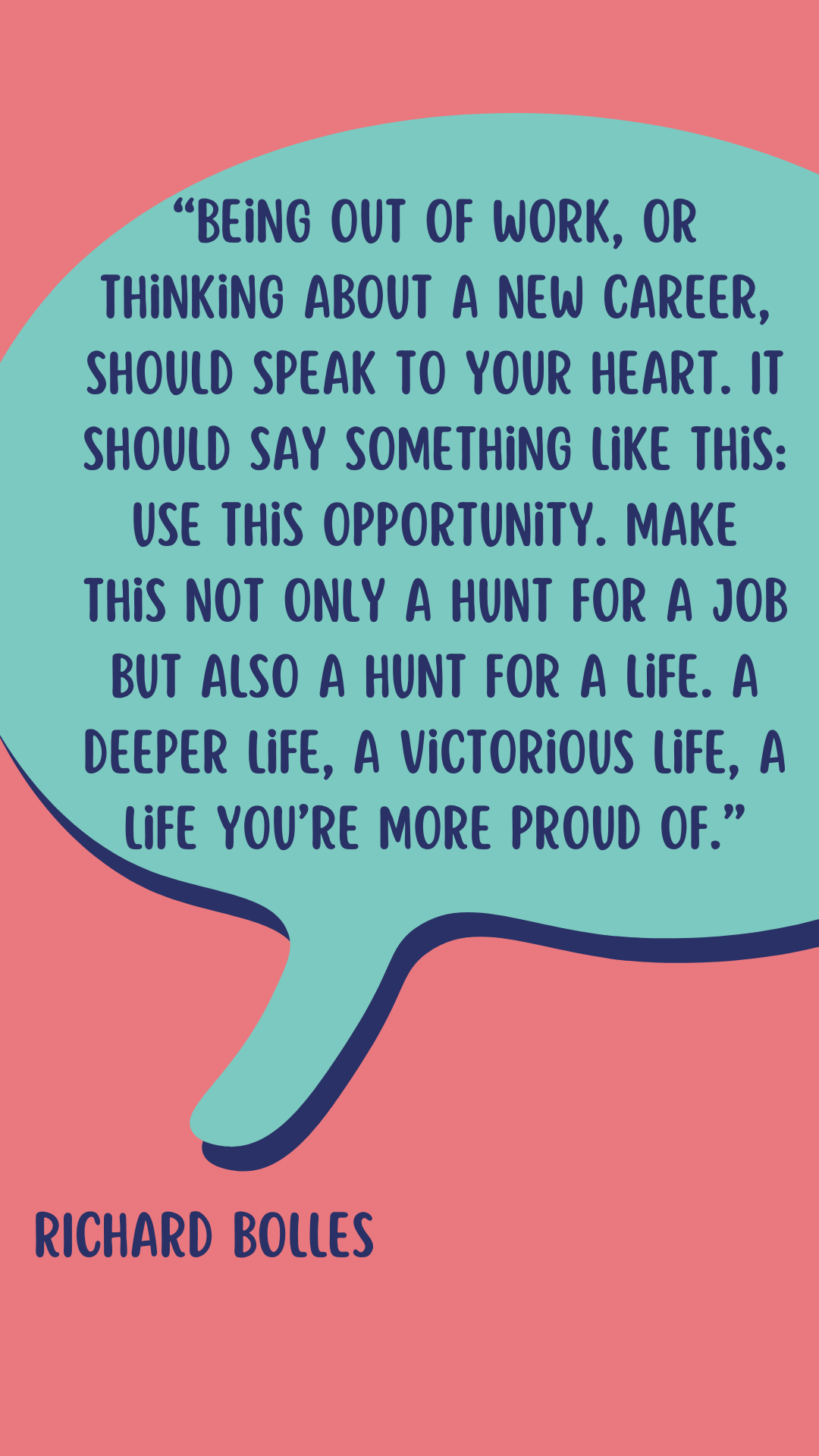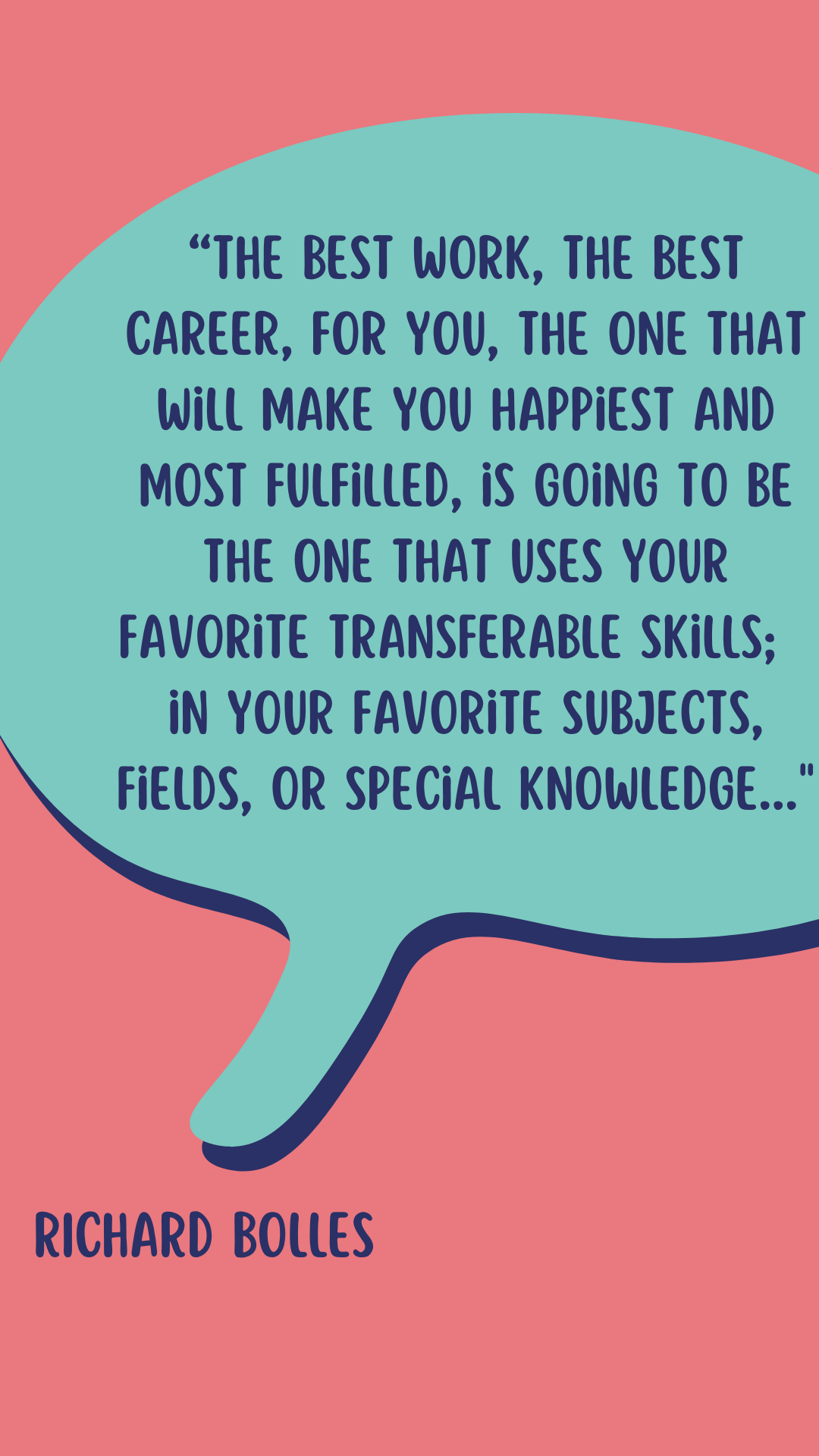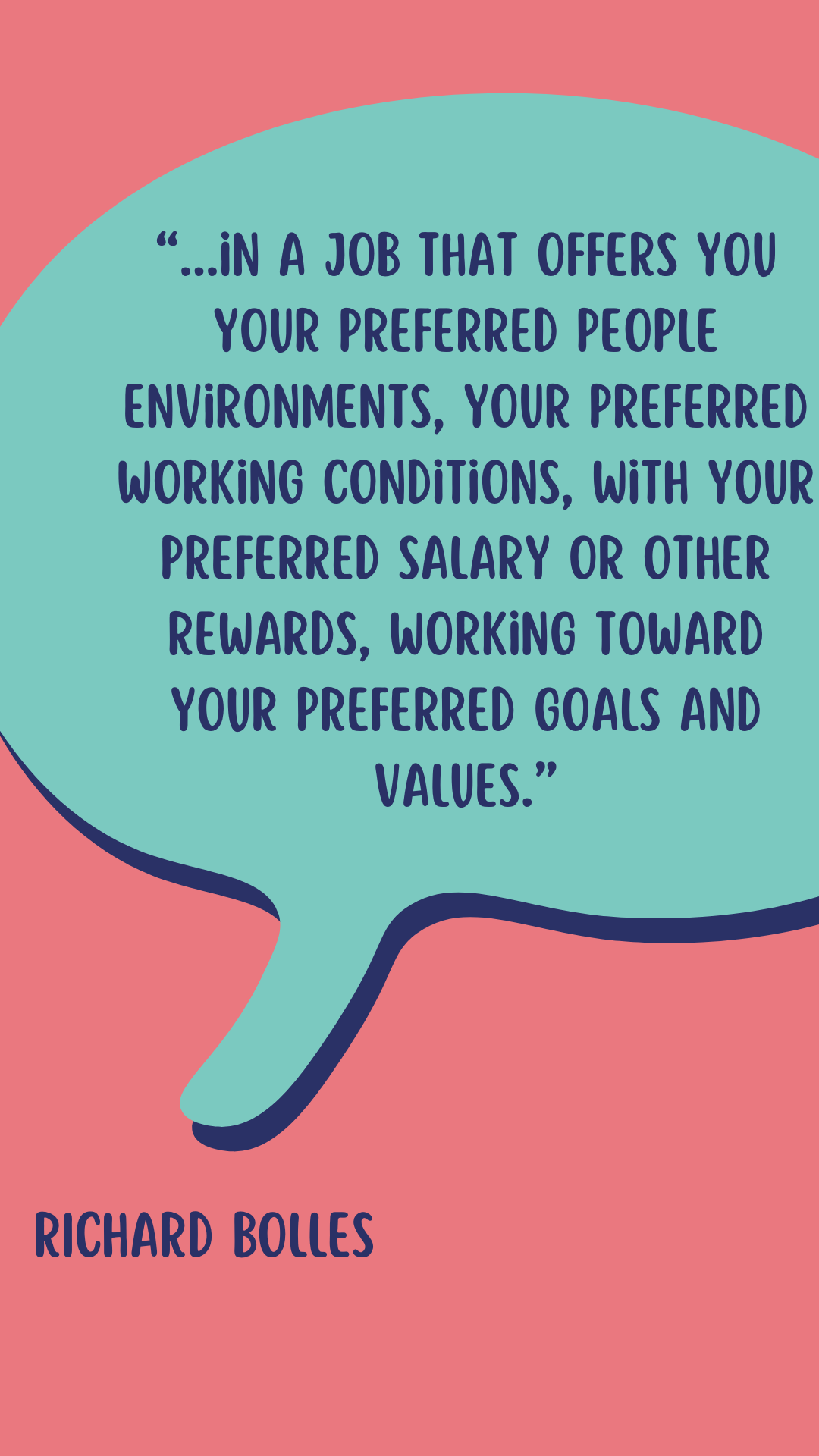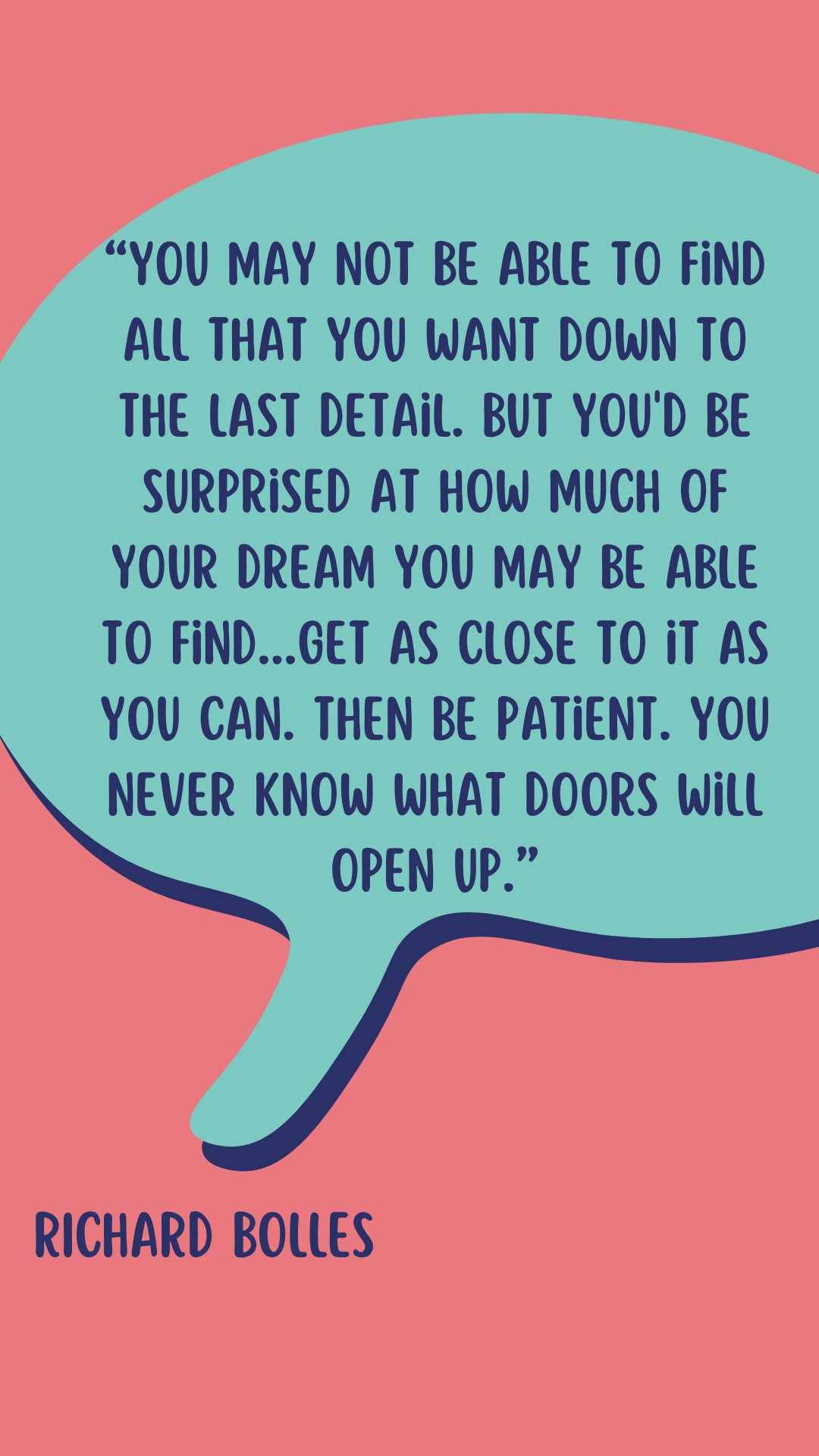What Color is Your Parachute?
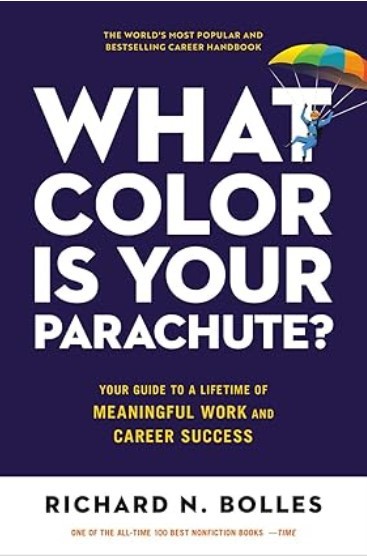
Richard Bolles revolutionized the concept of job hunting when his book What Color Is Your Parachute was first published in 1970. Unlike traditional career guides, the book first helps job seekers understand themselves so they can then find the jobs that fit.
The book's title came from discussions Bolles had with people who were unhappy in their jobs. When people would say they were thinking of bailing out, Bolles “always thought of an airplane when I heard that phrase. So I would respond, ‘What color is your parachute?’ ”
Bolles was well qualified to write a handbook on changing direction; he had changed his own several times, from planning a career in the chemical industry to becoming a minister and then, at 41, being fired and enduring the anxiety of unemployment at a time when he and his wife had four small children.
Bolles said, “I was just trying to help people be better prepared than I was when I was fired and started looking for a job.”
The world’s most popular and bestselling career handbook has sold over 10 million copies. The Center for the Book at The Library of Congress has named it “one of the 25 books that have shaped readers’ lives.” According to Fortune magazine, “Ideally, everyone should read What Color Is Your Parachute? In tenth grade and again every year thereafter.”
Bolles says that you are not powerless during the job hunt, regardless of whether the job market is strong or weak. “You control a lot of this process. Knowing that the employer has the ability to say yes or no can make you feel powerless, but that’s all the more reason to take charge of your search.”
According to Bolles, you can at least double your chances of success in your job search by doing six things:
Mastering job-search skills
Improving the way you present yourself in interviews and elsewhere
Being more aware of and confident about your skills
Taking action
Setting goals
Getting help when needed
Bolles has numerous suggestions about how to prepare for a key element in any job search–the interview. Before any interview, he recommends preparing to answer five key questions.
Bolles says that in today’s world, the person who gets hired is not necessarily the one who can do that job best; rather, it’s the one who knows the most about how to get hired. What Color Is Your Parachute is like a SparkNotes of everything you need to know about getting hired.
The core element of What Color Is Your Parachute? is the Flower Exercise, a self-inventory that helps readers identify key passions, transferable skills, and traits so that they can identify the profile of a job that would most completely match and fulfill them. According to Bolles, if you develop a deeper knowledge of who you are and what you need in your job, you will have a much greater chance of finding work you really want to do.
Bolles says that completing Parachute’s Flower Exercise, which can be time-consuming, is worth it because doing this kind of homework will make it easier to describe exactly what you’re looking for to your contacts, identify companies who match you, and definitively see what new career or direction you want for your life. Plus, by ending up with a picture of a job that would really excite you, Bolles says you are more likely to pour more time, energy, and determination into your job search.
According to Bolles, completing an inventory of who you are and what you love to do before you set out on your search for meaningful work, helps you take full advantage of the opportunity your job search represents.
Bolles says that seeking new employment offers us a chance to contemplate why we are here on earth and what our unique mission is. While Bolles speaks from a Christian perspective, he encourages the reader to translate the ideas he shares into a form that resonates with their own belief system.
Bolles cautions that figuring out what your mission in life is will likely take some time: “It is not a problem to be solved in a day and a night. It is a learning process that has steps to it, much like the process by which we all learned to eat.”
Bolles says to begin deciphering your unique mission by studying your talents and skills, and more particularly which ones (or one) you most rejoice to use. He says your mission is to take one step at a time, even when you don’t yet see where it all is leading, or what the Grand Plan is, or what your overall mission in life is.
According to Bolles, “I have learned that the secret of living is not to set as our goal a happy life, not even a successful life (as the world measures ‘success’), but a victorious life, meeting the obstacles and challenges that life naturally throws into our path, and by grit, determination, and grace, overcoming them all.”




